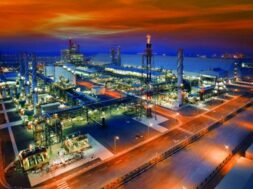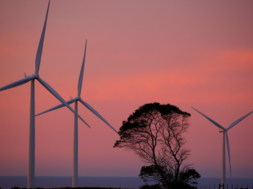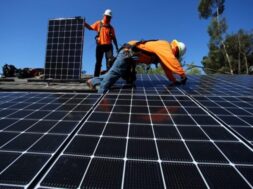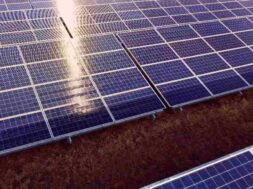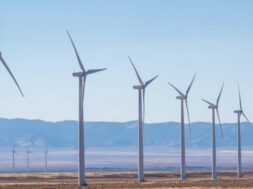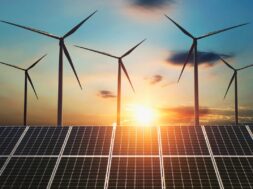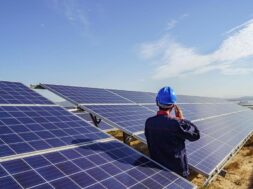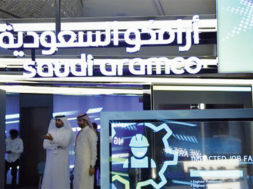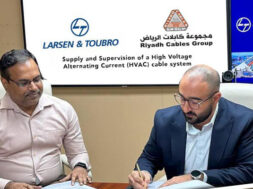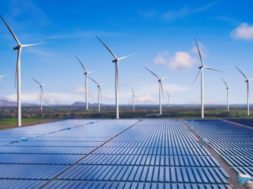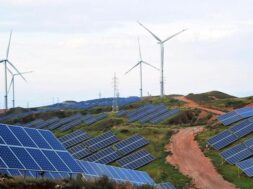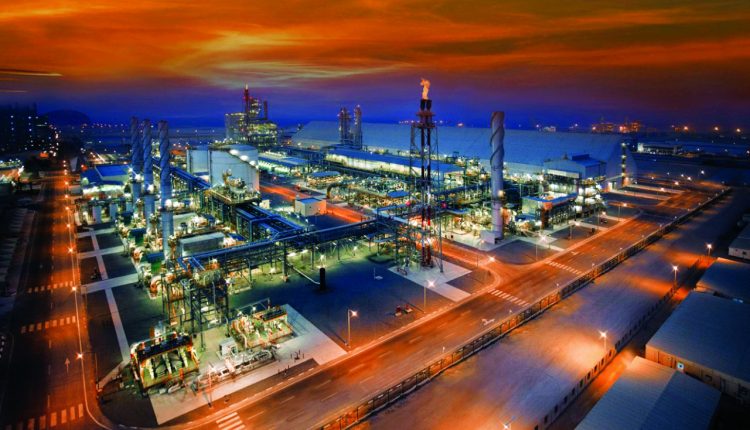
The energy sector in the UAE is one of the economic sectors with great weight, in both its hydrocarbon and clean parts, so it has always been present within the national strategies aimed at upgrading and developing it and moving it to greater horizons. When monitoring the sector’s transformations during 2022, we find that it was the year of transformation in the energy sector, as the country witnessed the launch of many projects, although the greatest focus was on clean energy projects that the UAE government gives double importance.
The transition in the energy sector needs realistic, ambitious, practical and economically feasible plans in order to succeed in achieving progress in energy security and economic growth simultaneously, which the UAE realized early on, as failure to meet the basic energy needs of societies causes slowdown in economic growth.
Therefore, it can be said that the UAE’s approach to transitioning to a new energy system required careful, effective and practical planning and the participation and cooperation of all sectors on a large scale. The strategies developed by the state were based on being a major player in the global energy sector, and it is also committed to achieving a smooth transition in the energy sector.
As a pioneer in the region in the renewable energy sector, the UAE has invested $50 billion over the past two decades in more than 70 countries, and plans to invest an additional $50 billion in the coming years.
Clean energy
Given that the state is preparing for the future, we find that everything it does today and the initiatives and decisions it launches form the basis from which it sets out to achieve its goals in the energy sector in the future, in line with its vision to celebrate the last barrel of oil in the year 2050.
The country has launched plans to promote the sustainability of clean energy through many initiatives and strategies. It has also taken early and continuous steps towards preparing to bid farewell to the last drop of oil, achieving a balance between development and maintaining a clean, healthy and safe environment, as the UAE Energy Strategy 2050 targets a mixture of renewable and clean energy sources, to ensure a balance between economic needs and environmental goals, and the state will invest 600 billion dirhams until 2050, to ensure meeting the demand for energy and sustaining growth in the country’s economy.
Dubai
The beginning comes from Dubai, which is one of the pioneering cities in developing the renewable and clean energy sector. It is also a pioneer in innovating modern methods and methods to enhance the efficiency of the energy sector, rationalize the consumption of natural resources, and find alternative solutions to traditional energy in a way that supports sustainable development.
Dubai has set a clear goal, which is to become a global center in the green economy, through a five-pronged strategy that focuses on: infrastructure, legislation, financing, capacity building, and the availability of a mix of environmentally friendly energy.
Dubai has made sure that those plans and goals that it set are in line with the UAE’s climate neutrality strategy 2050, which aims to replace traditional energy production with renewable resources.
Dubai Electricity and Water Authority (DEWA) had the lion’s share of the clean energy projects that were announced in terms of its continuous success in raising the efficiency and reliability of energy and providing its services according to the highest standards, reliability, efficiency and quality, and keeping pace with the increase in energy demand. Among the most important projects implemented by the authority is the Mohammed bin Rashid Al Maktoum Solar Energy Complex, which is the largest complex for the production of this type of energy in one location in the world, with a production capacity of 5,000 megawatts by 2030, and upon its completion, it will contribute to reducing more than 6.5 million tons of carbon emissions annually. It will also provide the emirate with 75% of its capacity to generate electricity from renewable energy sources by 2050. This year, the announcement witnessed the addition of 300 megawatts of solar photovoltaic energy, as part of the fifth phase of the complex.
Also among the other projects that support the transition to clean energy in Dubai is the green hydrogen project, which was implemented in cooperation with the “Siemens Energy” company in the Mohammed bin Rashid Al Maktoum Solar Park to produce hydrogen using solar energy. 10,000 square metres, capable of accommodating future applications and testing platforms for various uses of hydrogen including energy production and mobility.
There is also another major green energy project for which the ENOC Group signed an agreement with the Japanese heavy industries company “IHI” with the aim of establishing a manufacturing unit that is the first of its kind for green ammonia, which is considered one of the most prominent carbon-free fuel solutions with high economic feasibility. In terms of its practicality, low cost and ease of handling, as well as the fact that it produces hydrogen at high density rates.
Abu Dhabi
The Abu Dhabi government attaches great importance to the clean energy sector, and to achieve its goals, it has launched many mega projects that qualify it for a clean transition in the energy sector, according to the state’s 2050 strategy. The National Petroleum Company “ADNOC” comes at the forefront of the companies working in implementing Abu Dhabi’s plans in the clean energy sector. And reducing carbon emissions simultaneously with its endeavor to develop and expand its operations to meet the growing global demand for energy, as ADNOC adopts a comprehensive approach to sustainability that reflects the UAE’s commitment to consolidating its position as a responsible global energy provider, and its efforts to enable building a more sustainable future.
Abu Dhabi has implemented many major projects in the field of clean energy, including the construction of the Al Dhafra solar photovoltaic plant, which is the largest solar power plant in the world with a capacity of up to 2 gigawatts of electricity in the Al Dhafra region, which is scheduled to be launched by 2023. The station will support the diversification of energy sources. renewable resources in Abu Dhabi, raise the emirate’s total capacity and reduce carbon dioxide emissions. The plant aims to reduce the emirate’s carbon emissions by more than 2.4 million metric tons annually.
The Shams 1 station is also one of the largest projects for producing electric power using concentrated solar energy. The project aims to provide 7% of Abu Dhabi’s renewable energy needs. The station extends over an area of 2.5 square kilometers with a production capacity of 100 megawatts, within a solar field consisting of 768 parabolic reflectors to collect solar energy and generate clean and renewable electric energy.
Masdar also announced its new structure, which included the launch of the company’s business in the field of green hydrogen, with the aim of strengthening its efforts and expanding its projects in the field of clean energy and contributing to advancing global efforts to reduce emissions. Thanks to this step, Masdar has become one of the largest clean energy companies in the world, and enjoys a prominent position to enhance its leading role in this sector, which contributes to the consolidation of the UAE’s leadership in the energy sector.
oil and gas
Oil and gas are the main suppliers of hydrocarbon energy in the UAE, and the country is rich in them to a large extent, which made the country one of the major players in the global energy sector and one of the most prominent influencers in it. Therefore, the country announced, within the framework of its global commitments, an increase in production capacity to 5 million barrels per day. By 2027 instead of 2030, the country’s reserves have also increased to reach 113 billion barrels of oil and 290 trillion standard cubic feet of natural gas, which strengthens the UAE’s position among the list of countries with the highest reserves in oil and natural gas, which contributes to consolidating its position as a reliable global resource for energy. .
This announcement came to confirm the country’s continuation in strengthening its position and role as a major contributor to ensuring global energy security and the sustainability of its supplies, and a main supporter of the efforts of a realistic and responsible transition in the energy sector, by keeping pace with the future and investing in the important opportunities that this transformation provides.
ADNOC comes at the forefront of national companies operating in the oil and gas sector, with its high financial solvency and gigantic and ambitious projects. This was evident in the company’s announcement this year of increasing its capital investments to reach 550 billion dirhams within 5 years. 2022 was a year full of projects for ADNOC, as it awarded contracts worth billions of dirhams in order to develop its drilling services with the aim of expanding its production capabilities in onshore and offshore fields, and it also rented drilling platforms in various production sites to keep pace with the growing global demand for oil and gas.
For example, ADNOC announced the establishment of ADNOC Gas, a new world-class gas processing and marketing company, which will start operations as of January 1, and will assume responsibility for operations, maintenance and marketing of ADNOC Gas Processing and ADNOC Natural Gas. Liquefied » through one integrated company.
ADNOC, along with the Abu Dhabi National Energy Company “Taqa” and the Mubadala Investment Company “Mubadala”, announced the completion of the strategic agreement to acquire shares in the Abu Dhabi Future Energy Company “Masdar”, to become the ownership of “Masdar” in the three companies. The agreement aims to bring together the efforts of three of the most prominent companies in Abu Dhabi to expand, develop and develop the scope of Masdar’s operations, and raise it to the ranks of international companies, to include renewable energy, green hydrogen, and other technological innovations that support clean energy.
ADNOC also announced setting a new world record for drilling the longest oil and gas well in the Upper Zakum concession. The well extends for a distance of 50,000 feet, and its length exceeds the record for the longest well in the world previously announced in 2017 by about 800 feet.
It also announced the award of 3 contracts under framework agreements for integrated drilling services, worth 14.68 billion dirhams, to provide well drilling fluids and related services. These contracts support ADNOC’s continuous efforts to expand its production capabilities from low-emission energy sources, in its endeavor to meet the growing global demand for energy.
